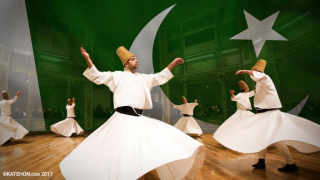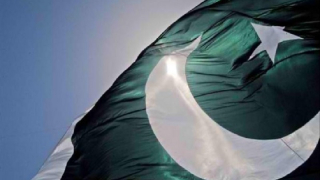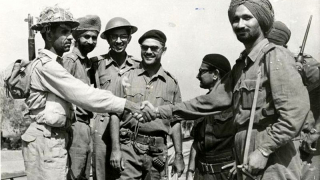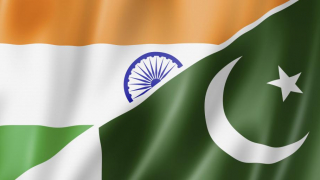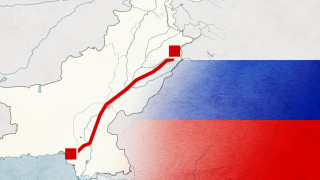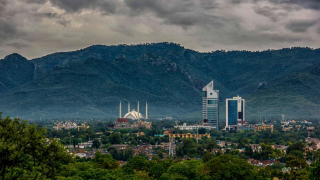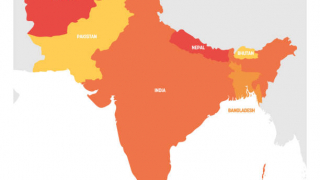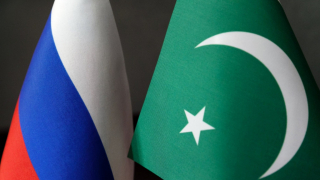MAJOR TAKEAWAYS FROM BISHKEK
Although SCO summit at Bishkek was able to discuss the challenges and opportunities in the larger Eurasian Context, it opened new vistas of strategic thinking and concept development.
Apparently Pakistan was offered centre stage at major central meets and banquets, with President Putin of Russian Federation and Prime Minister of Pakistan placed side by side to avail an opportunity to discuss areas of mutual interest as the tight schedule could not allow elaborate meetings. International and Pakistani media picked up the positive vibes and chemistry between President Putin and Prime Minister Imran Khan and Bishkek seems to have produced the magical glue binding Pakistan and Russia.
It may not be out of place to mention the role played by a quite group in bringing Russia Pakistan closer, these were Russian and Pakistani media personnel and strategic thinkers, who paved the way for creating an environment of understanding between both countries.
No wonder President Putin pointed out that after efforts by ex President Musharraf, no senior political leaders made serious efforts to continue with building the relationship to a higher level. Although military leadership of both countries provided the continuity in military diplomacy, like Pakistani COAS General Bajwa’s visit to Russian Federation in 2018, it was Prime Minister Imran Khan, who displayed statesmanship of the highest order and opened up to Russia to cover the gap left out after Musharraf.
With permanent induction of Pakistan in SCO, Pakistani leadership has decided to play a defining role within the concept of Eurasian brotherhood. President Putin’s gesture of reciprocity makes sense and Pakistan should be discussing more about that in domestic media.
While India had been claiming to have isolated Pakistan in the region, Bishkek had a very different message for India, Pakistan was not isolated; actually India has to answer some of the questions related to her role in SCO.
If India had become a permanent member of SCO, what role it was assigning to herself in preserving interests of the SCO? Did India fit into the spirit of SCO and plan to work for the lofty objectives of this Eurasian Brotherhood?
India has also become an active member of Indo Pacific Alliance and is being termed as the American Asia Pivot, how can India justify her position in SCO, if the Indo Pacific Alliance long term objectives are bound to clash with objectives of SCO.
Although SCO is not primarily focused on solving bilateral relations between member states, the spirit of this great organization calls for working for collective interest of member countries. Why is India shy of using this platform to open a dialogue with Pakistan. By maintaining hostile posture towards Pakistan, is India marring the atmosphere of SCO?
Indian think tanks like Observer Research Foundation(ORF) downplayed the entire spirit of SCO and twisted the strategic outcome of the summit and pointed out that “The SCO summit saw bilateral meetings garnering more attention than the multilateral summit itself”. Was it a jibe to highlight Modi’s frustration with PM Imran Khan getting at the centre stage? This aspect requires a sole searching by SCO members.
India also denied a meet between Iranian President and Modi and gave a frivolous reason of scheduling issues, was it under American pressure? Iran needs to look at her India policy and be watchful of how much reliance can be placed on her time tested friend.
Kirghizstan and her leadership must be commended for hosting the CSO summit for 2019 in an amicable manner and helping the members to exchange ideas for mutual cooperation.
Pakistan presented her role in the SCO with clarity and candidness; Prime Minister did talk of establishment of areas of excellence in member states, bringing down barriers of distance through strategic connectivity initiatives like China Pakistan Economic Corridor or the CPEC, fighting terrorism and working for peace in Afghanistan. Prime Minister Imran Khan also appreciated the role played by Russia and China for a lasting peace in Afghanistan and providing a pedestal for regional stake holders to find a way through.
Pakistan presented herself as an attractive investment destination, a predominantly young population imbued with immense energy and creativity. Prime Minister Imran Khan said that “our other endowments include a vast pool of skilled human resource, a large agrarian base, diverse mineral wealth and a developed IT infrastructure”. On issues of security and war against terror, Imran Khan said, “We are among the few countries to have successfully turned the tide against terrorism; Pakistan remains ready to share its experience and expertise in counter terrorism. We will also actively remain engaged in SCO’s counter terrorism initiatives”.
Throughout the SCO summit Pakistani Prime Minister emphasized the need to galvanize the ‘Shanghai Spirit’ to strengthen SCO’s core mandate of mitigating the risks of conflict, fostering confidence and promoting stability.
In order to appreciate the role of Kyrgyz President Sooranbay Sharipovich Jeenbekov, Prime Minister Imran Khan had a cordial meeting with him; the two countries agreed to strengthen land and air connectivity and enhance people to people contacts.
In nut shell, SCO summit has advanced the agenda of Eurasian brotherhood and allowed the leadership of the member states to offer new concepts of mutual cooperation and coexistence, something President Putin of Russia has been emphasizing since the very creation of this organization. With vast natural resources, technology, military and nuclear power and a thriving population SCO is bound to find a place in the sun and become a beacon of light for rest of the world.


